Maximón is a folk saint of the Maya of Guatemala, associated with pre-Columbian Earth lords who provide money or economic opportunity to client-petitioners. He is an opener of the way, a bringer of rain, and symbolizes male sexual power.
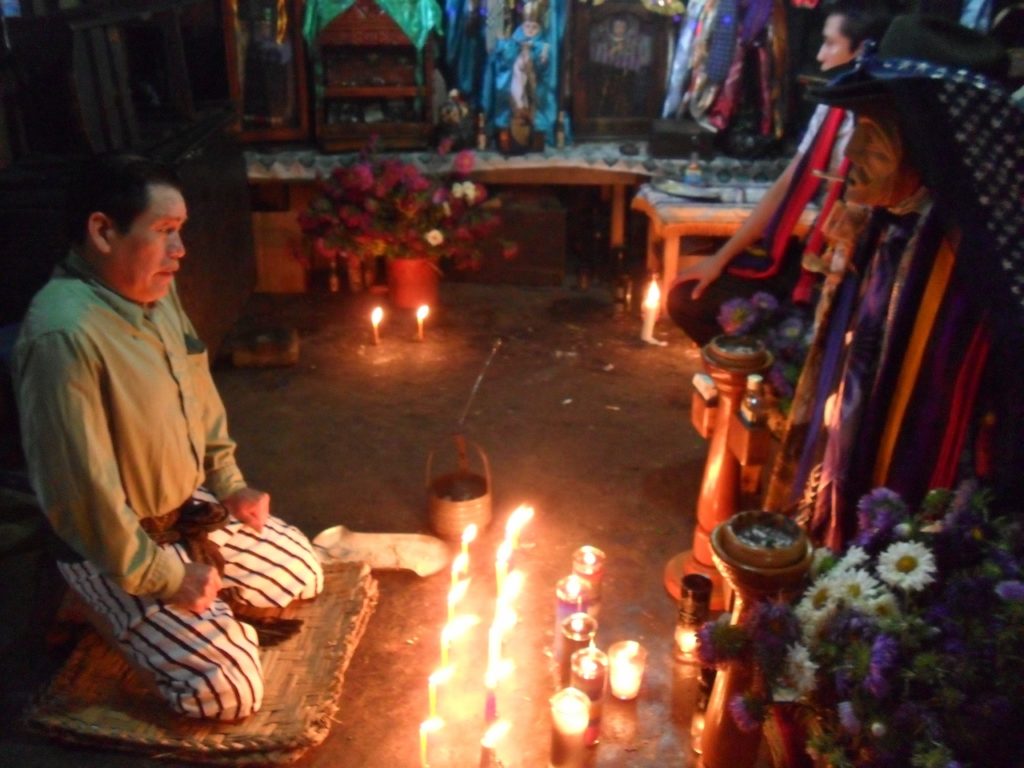

Folk Saint of the Maya
Maximón (pronounced maa-shee-MOHn) is a folk saint venerated in various forms by Maya people of several Guatemalan towns in the highlands of Western Guatemala. His effigies are found in Nahualá and San Jorge La Laguna, and is especially famed in Zunil, San Andrés Itzapa and Santiago Atitlán.
One school of thought associates him with pre-Columbian underworld Earth Lords, wealthy beings who live inside mountains, associated with black water, the primordial sea from where all life was spawned. He can be bargained with to provide money or economic opportunity to client-petitioners. The Catholic Church feared his great influence and associated him with Judas of Iscariot, the betrayer of Jesus, which only increased his influence. He is represented as a captured figure, bound then hanged. (His image is hanged on the Wednesday before Good Friday.) However, he would be met, while escaping town, by a townsman, who would later report Maximón’s intention to return when needed to help his people and was always available through petitions for counsel.
Keeper of the Tobacco, Opener of the Way, Symbol of Male Sexual Power
In the name Maximón, ximon means “tied or bound one,” and Ma is the title of respect given to adult men. Another version combines Simón (as in the Catholic Saint Simon, champion of the hopeless) and Max, the Mam Maya word for tobacco. He is also known as Rilaj Mam or “Great Grandfather.” Seated at a crossroads, Maximón is represented as a light-skinned, dark-haired man, wearing a black boater hat, a black suit, red tie and white shirt. Regardless of representation, he loves to smoke and drink. Petitions should be accompanied by gifts of alcohol, cigarettes, and cigars.
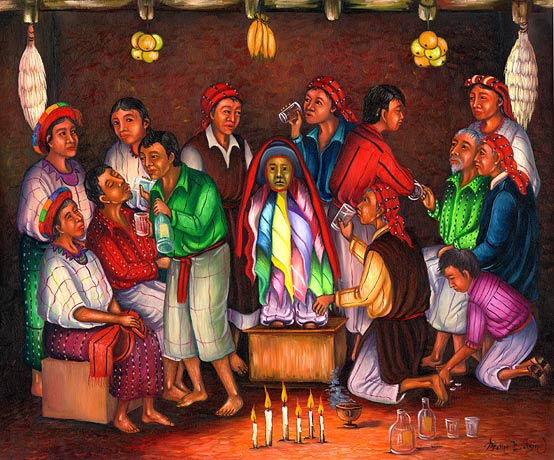

Maximón can symbolize the underworld-spirit of male sexual power. As an “opener of the way,” his feast day falls at the onset of the fertile rainy season, but usually his darker aspect leads devotees to guard his visage from public view, for fear that his sexuality may run rampant. Primarily a bringer of rain and fertility, he is also called “the saint of gamblers and drunkards.” He brings wealth and worldly success to those who venerate him. A legend has it that one day while the village men were off working in the fields, Maximón slept with all of their wives. When they returned, they became so enraged they cut off his arms and legs (this is why some say effigies of Maximón are short, often without arms).
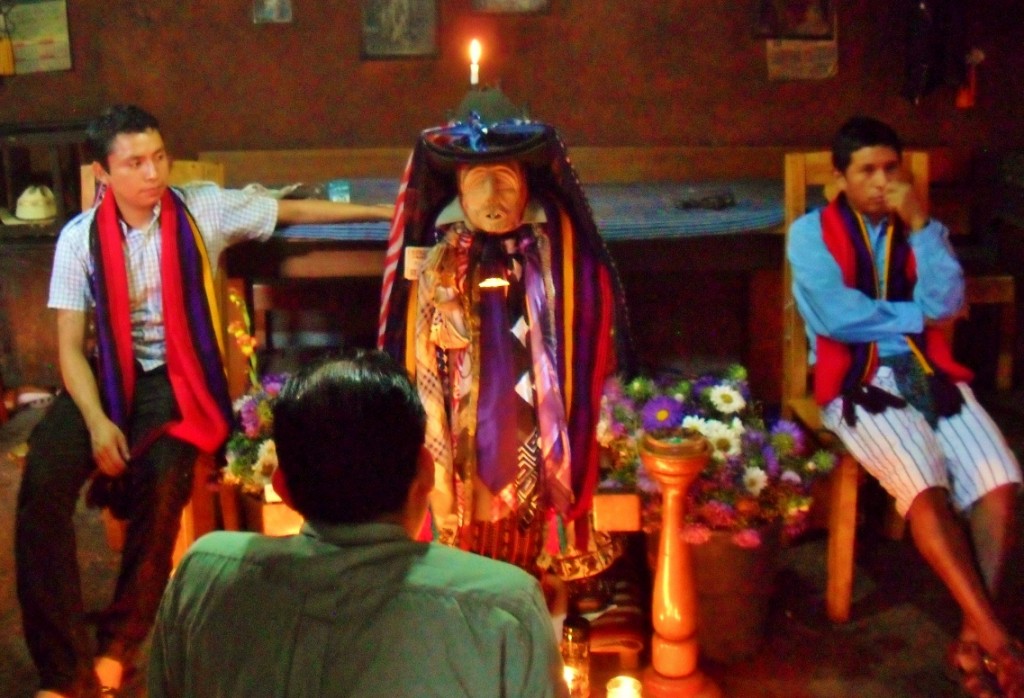

Great Grandfather Fashioned from a Sacred Tree by the Nahuales
Another story holds that to combat the many witches and evil beings around Santiago Atitlán, the Nahuales (shamans) got together and sought a Great Grandfather for the village. They went to a place called Chukox Aq’oom and consulted a tree called Tz’ajte’l. The tree agreed to help and they cut it down to fashion the image of Great Grandfather. They formed the body with rags, using an ancient green stone carving as a heart, and put rings on his arms for tying him up. He came alive and they released him into the streets where he overcame the evil beings but went out of control causing his own form of mayhem. So the shamans twisted his head so he looked backwards and broke his legs so he couldn’t walk around. Today he only works with Nahuales and the Brotherhood of Santa Cruz to help the people.
Today petitioners arrive daily with the Ajq’iij (the daykeepers or Mayan calendar priests), some asking for help for others, some asking for money. The men ask for a wife and the women ask for a good husband. This is the life of the Rilaj Mam, Don Pedro, San Simon. The Mayan priests name him now “The Doctor, The Angel, a lightning bolt that strikes, the underground one, the Extra Terrestrial, and the Astrologist.” They also call him the Great Grandfather Mam, Great Grandfather Pedro.
A Dance to Rilaj mam from Judith Maxwell: After the initial invocations and individual petitions, Tojil brought out a rooster. Holding the rooster by its wings and feet, Tojil danced it around the fire. Then the Western cardinal daykeeper joined him in the dance, ending at the southern pillar, where the bird was killed. The Western daykeeper twisted the head until it came off and tossed the head into the fire, careful to direct the arterial blood spurt into the flames. He and Tojil then danced the bird around the fire again, expressing the blood into the fire.
Sources
http://www.artemaya.com/contmax.html
http://tulane.edu/liberal-arts/blogs/maxwell/rilaj-mam-great-grandfather-10282009.cfm
http://www.santiagoatitlan.com/Religion/Maximon/maximon.html
Updated 16 March 2017

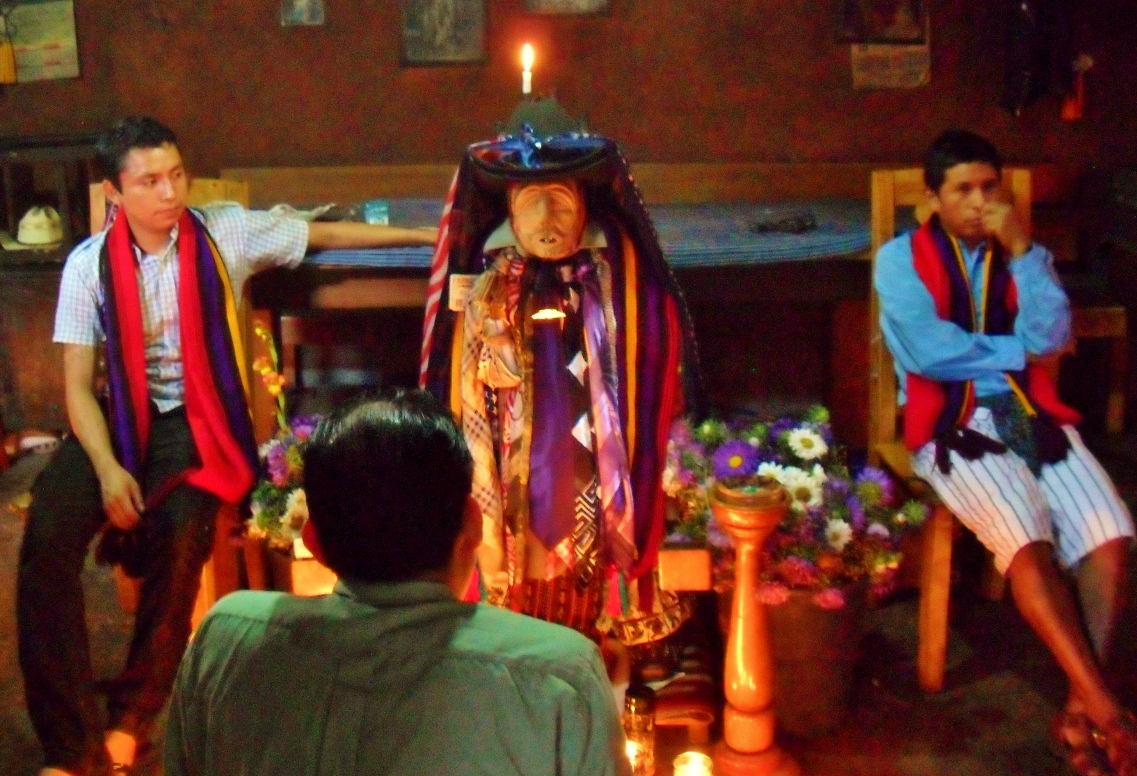

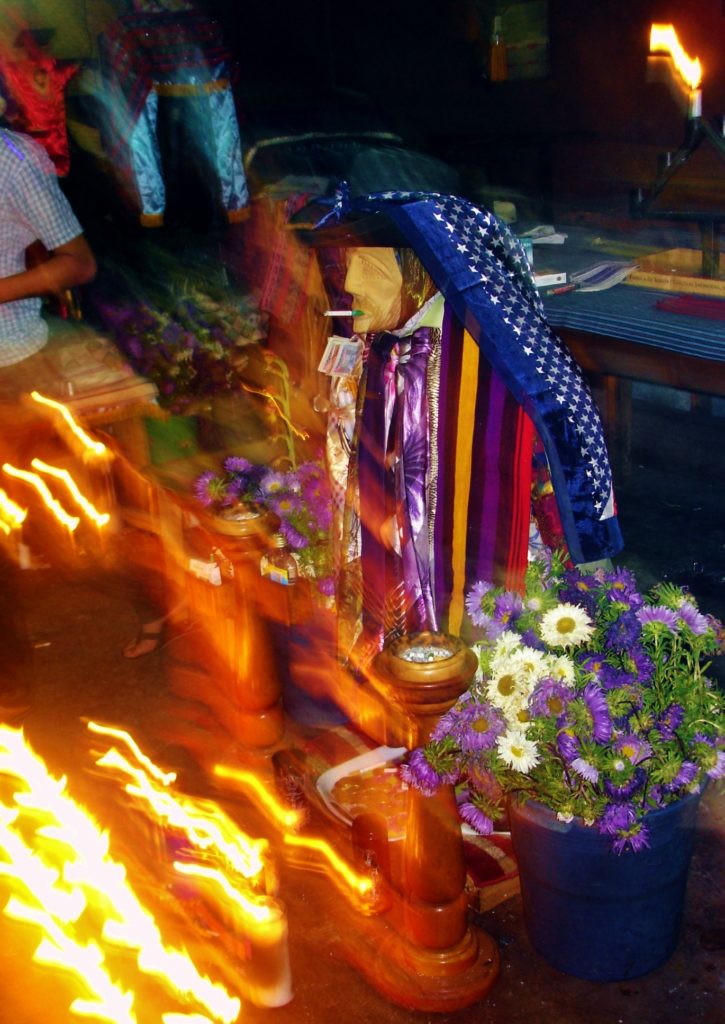

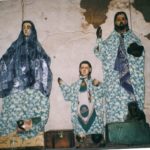
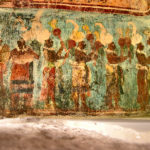
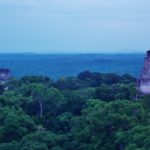
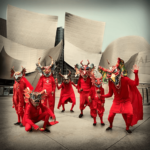
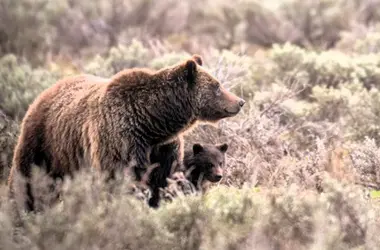

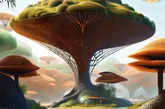

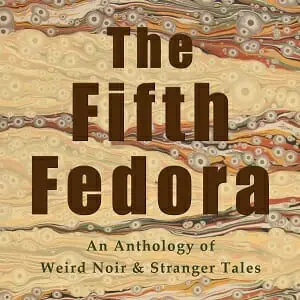

Pingback: Lake Atitlan - The Most Beautiful Lake in the World?
Pingback: Six Weeks in San Pedro La Laguna, Guatemala | Language and other musings
Pingback: Mayan God, Renegade Saint, The Outlaw Maximón - My Blog
Pingback: Traditional Healing among the Highland Maya | WilderUtopia.com
This is so wrong, on so many levels. The amount of misinformation is astounding. Mr. Jack Eidt! Did you actually come to Guatemala for this story? You most likely did not— you just poorly copied information from your half-credible sources. sigh.
Thanks for checking in, Gabriela. I guess my experience of Guatemala differs from yours. Feel free to correct any errors with “credible” sources.
what is the real version..could you share please?
Pingback: Volcanoes and Vibrant Colors of Antigua Guatemala | WilderUtopia.com
Thank you san simon for healing us.May your name be blessed.
Pingback: 6 Jaw-Dropping Sex Stories From Historical Myths - The How-To Zone
Pingback: Popol Vuh: The Ancient Maya Dawn of Life and Overcoming the Forces of Awe